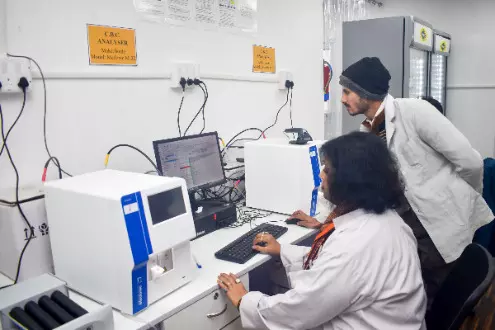Fix handwriting, shift to digital prescriptions: HC tells doctors

Chandigarh: In a landmark ruling, the Punjab and Haryana High Court has declared that illegible medical prescriptions and reports violate the fundamental right to health guaranteed under Article 21 of the Constitution. The court directed doctors across India to ensure that prescriptions are written clearly or digitally to safeguard patient safety.
Justice Jasgurpreet Singh Puri, who issued the directive, recounted how the court’s attention was drawn to the problem during a bail hearing when he encountered a medico-legal report that was “entirely indecipherable”. The bench noted that “not a single word or letter was legible”, calling the experience one that “shook the conscience of the court”.
The ruling arose from a criminal case in which a medico-legal report, prepared by a government doctor, was found to be incomprehensible. Justice Puri observed that illegible writing not only impedes justice but endangers patients, since prescriptions form a core part of medical care.
The court outlined a detailed framework to address the issue nationwide. Until digital or typed prescriptions become standard practice, doctors are required to write in clear block letters. Hospitals and clinics have been given two years to fully transition to computerised or e-prescription systems.Medical training will also undergo reform. The court directed the government and medical regulators to introduce modules on legibility and prescription writing into medical curricula. Health authorities in Punjab, Haryana, and Chandigarh must now oversee compliance, convene district-level awareness drives, and coordinate enforcement through civil surgeons and medical councils.
In addition, the bench recommended that minimum standards under the Clinical Establishments Act be revised to include digital record-keeping and legibility norms, ensuring uniform standards across public and private healthcare institutions.
While acknowledging doctors’ indispensable public service, the court clarified that the order was not meant to reprimand the profession but to uphold patients’ rights.
The Indian Medical Association (IMA) cautiously welcomed the move. Its president, Dr Dilip Bhanushali, told the BBC that the problem was real but uneven across regions. “Many urban doctors already use digital tools,” he said, “but the burden is heavier in rural or resource-limited areas.” He added that the IMA was open to working with authorities to find “practical solutions”.
However, several doctors have voiced concerns about implementation challenges. In overcrowded public hospitals, they often treat dozens or even hundreds of patients per shift, leaving little time for slow, deliberate handwriting. They warned that digital systems would require significant investment in infrastructure, training, and administrative support, especially outside major cities.
Pharmacists, meanwhile, welcomed the judgment. Many have long complained about the risks of misreading ambiguous prescriptions, sometimes resorting to calling doctors for clarification or developing informal “decoding” habits to avoid medication errors.



